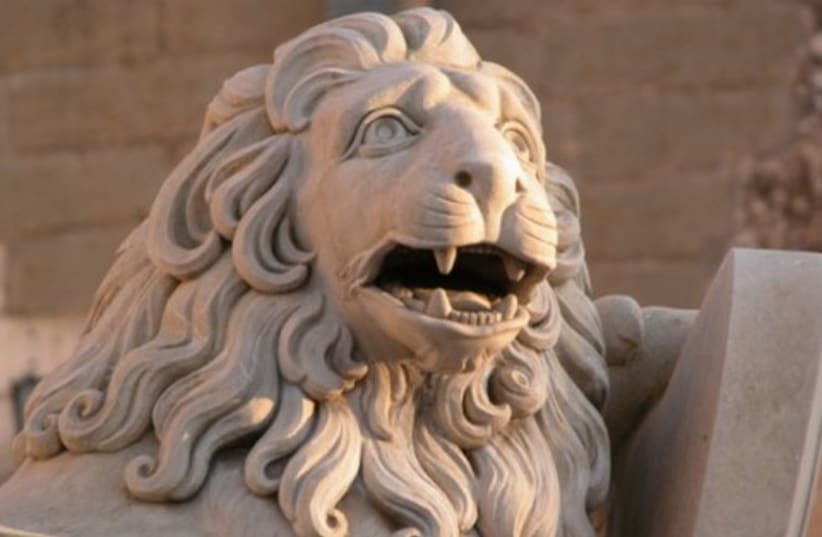Every so often, over the last 60 years or so, I walk or drive down Keren Hayesod Street in Jerusalem.
Keren Hayesod Street, named for the United Israel Appeal, precisely follows the line of the watershed; when the rains fall, the water on the right side of the road will gently flow into the Mediterranean Sea, while the water on the left side will drop sharply into the Valley of Hinnom, on the edge of the Old City, and then into the Dead Sea Valley, creating sudden gushing waterfalls that will disappear just a few hours after the rain stops.
The historic route, which leads from Jerusalemʼs old train station into the heart of the new city, was considered so important that immediately after taking control over Palestine in 1917, the British named the road after their monarch, King George V. Some 50 years later, the Israelis decided that King George would have to make due with half of the road, and changed the southern part of the road to Keren Hayesod in honor of the first Zionist philanthropic fund.
Twenty years ago, the Jerusalem municipality developed a park along that southern half; one of its main attractions is the water fountain, popularly known as “the Lions Fountain.” Itʼs a beautiful location, set among olive trees, with a panoramic view of the Old City Walls, the spires of the churches and the domes of the towers.
The Municipal Information Center tells you that the Lions Fountain was donated to Jerusalem by the German government, and the intention of the German artist, Gernot Rumpf, was “to combine Europe with Jerusalem,” to create a meeting place for the diverse populations of Jerusalem and to join the old and new cities. Rumpf dreamed that as they climbed over the lions and splashed in the water, the children of Jerusalem would give expression to the hope for peace and coexistence between Jews and Arabs in the city.
Surprisingly enough, Rumpf’s dream is coming true – sort of, in bits and pieces. Arab families from the nearby neighborhood of Abu Tor love to picnic here in the summer as their children jump in the cool water. Sometimes, there are Jewish children there, too, although not too often. And in those moments, the coppertoned lions preside over a modest promise that life in this city, known more for its conflicts than for its embrace of diversity, really can be shared among people from all nations.
On a cloudy, chilly day in mid-December, I was driving down Keren Hayesod Street. My journalist’s eye caught a commotion at the Lions Fountain as a motorcycle policeman rushed into the area. Armed with my iPhone camera, I caught the action.
Coming in close to the fountain, I can see that a group of girls, looking to be about 12 or 13 years old, dressed in their blue and black school uniforms, are standing, sopping wet and shivering, in the water. The temperature is 10 degrees Centigrade, but with the wind chill it feels much colder.
The insignia on their coats and backpacks reveal that they are from the Yiddish-speaking Beis Ya’acov School for ultra-Orthodox girls in northern Jerusalem.
The teachers don’t know what to do. Calling out in Yiddish, they beg the girls to come out of the water – after all, they are all from good families, the teachers admonish them, and good girls from good families don’t splash around in water fountains in the middle of the city.
The girls ignore them. They splash at each other and laugh, jumping up and down. They are soaked and it is very cold, but they keep on, clearly having fun as they call to each other in Yiddish.
The policeman doesn’t know what to do, either – although it’s not clear why he thinks he has to do anything anyway. He reports dutifully into his radio – although it’s not at all clear what, exactly, he is reporting.
The party is in full swing, and the music – the falling water and the free-spirited laughter of the girls – is delightful. They have no intention of stopping. Even the lions seem happy to keep spewing out the water.
But it’s getting colder.
